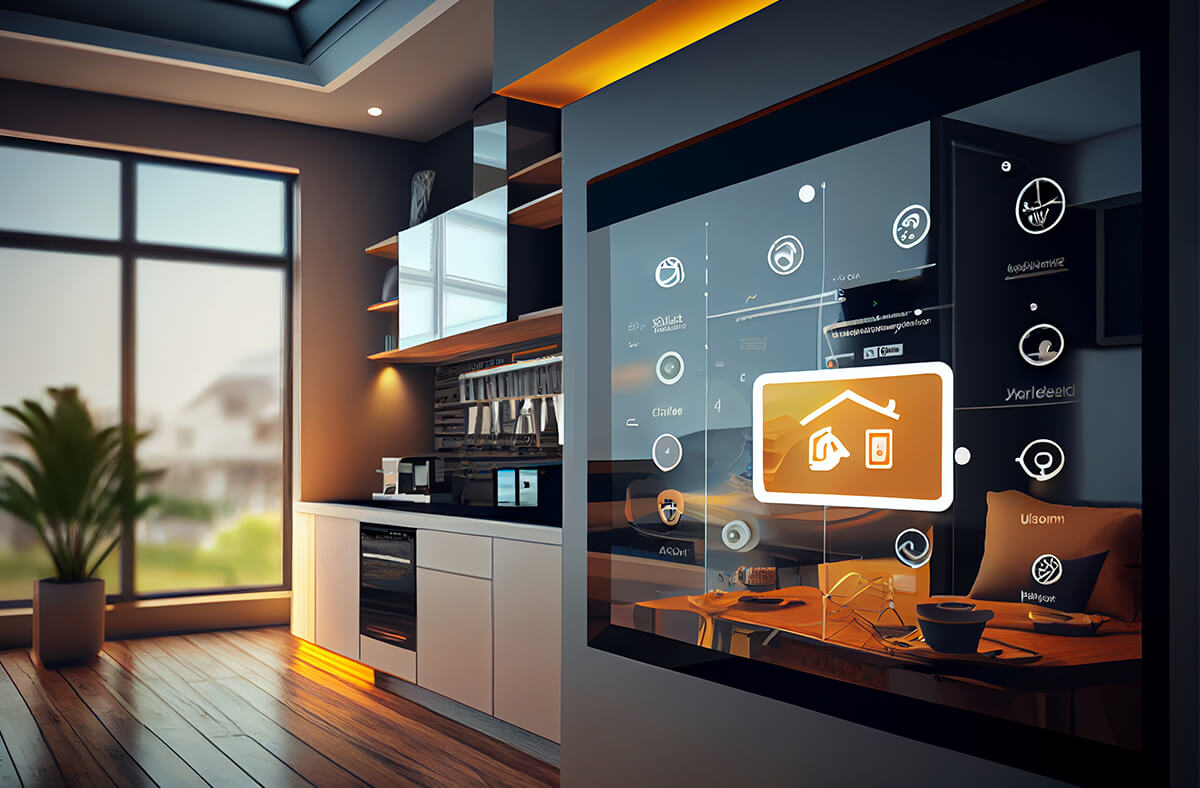
Smart Home Technologies: Integrating Modern Conveniences into Your Renovation
Smart home technologies have revolutionized the way homeowners interact with their living spaces. From enhancing convenience and security to improving energy efficiency and overall comfort, these technologies are increasingly becoming a standard feature in modern renovations. As technology continues to evolve, integrating smart home systems during renovation projects offers numerous benefits beyond aesthetics, contributing to the property’s functionality and market appeal.
Enhancing Convenience and Connectivity
One of the primary advantages of incorporating smart home technologies is the ability to streamline daily tasks and enhance convenience. Devices such as smart thermostats, lighting controls, and automated appliances allow homeowners to adjust settings remotely via smartphones or voice commands. This level of connectivity not only simplifies household management but also provides real-time monitoring and control, improving overall efficiency and comfort.
Improving Energy Efficiency
Energy-efficient smart devices play a crucial role in reducing utility costs and minimizing environmental impact. Smart thermostats, for instance, learn household heating and cooling patterns to optimize energy usage based on occupancy and external weather conditions. Similarly, smart lighting systems use sensors to automatically adjust brightness and turn off lights in unoccupied rooms, contributing to significant energy savings over time. Integrating these technologies during renovations aligns with sustainable living practices while enhancing the property’s appeal to environmentally conscious buyers.
Enhancing Security and Safety
Smart home security systems offer advanced monitoring capabilities, including video surveillance, motion detection, and remote access to door locks and alarms. These features provide homeowners with peace of mind by allowing them to monitor their property’s security status in real time and receive alerts about potential threats or emergencies. Enhanced safety measures such as smoke detectors and water leak sensors further protect the property from potential hazards, minimizing risks and mitigating damage.
Optimizing Home Entertainment
Entertainment systems integrated with smart technologies deliver immersive audiovisual experiences tailored to homeowners’ preferences. Wireless speakers, multi-room audio setups, and voice-controlled media centers create personalized entertainment zones throughout the home, enhancing the overall ambiance and entertainment capabilities. By integrating these systems into renovation projects, homeowners can transform living spaces into versatile hubs for relaxation and social gatherings.
Creating Adaptive Living Environments
Smart home technologies support aging in place by accommodating accessibility needs and enhancing daily living for seniors or individuals with disabilities. Features such as smart door locks, automated lighting, and voice-controlled assistants enable independent living while providing caregivers with remote monitoring capabilities. These adaptive technologies promote comfort, security, and autonomy, allowing residents to maintain their quality of life within familiar surroundings.
Implementing Smart Design Strategies
Integrating smart technologies into renovation projects requires careful planning and consideration of the property’s layout, infrastructure, and user preferences. Designers and renovators collaborate to assess the feasibility of incorporating smart systems into existing structures while ensuring seamless integration with architectural elements and interior aesthetics. Thoughtful placement of sensors, wiring, and control panels ensures functionality without compromising the property’s visual appeal or structural integrity.
Budgeting and Cost Considerations
While smart home technologies offer long-term benefits, integrating these systems requires upfront investment in equipment, installation, and programming. Homeowners should establish a budget that accounts for hardware costs, professional services, and potential upgrades to ensure a successful implementation. Evaluating return on investment (ROI) factors such as energy savings, increased property value, and enhanced marketability helps justify initial expenditures and maximize long-term financial benefits.
Maintaining Smart Home Systems
Regular maintenance and software updates are essential for preserving the functionality and security of smart home technologies. Homeowners should establish maintenance schedules to inspect hardware components, update firmware, and troubleshoot connectivity issues. Engaging with certified technicians or service providers ensures compliance with manufacturer warranties and resolves technical issues promptly, prolonging the lifespan of smart systems and optimizing performance over time.
Integrating smart home technologies into renovation projects represents a strategic investment in enhancing property value, functionality, and sustainability. From improving convenience and energy efficiency to enhancing security and adaptive living environments, these technologies redefine modern living experiences while preparing properties for future market demands. By embracing innovation and leveraging smart design strategies, homeowners can transform their residences into intelligent living spaces that cater to evolving lifestyle preferences and technological advancements. Embracing these advancements not only enhances everyday living but also positions properties competitively in the real estate market, ensuring long-term value and appeal for years to come.
